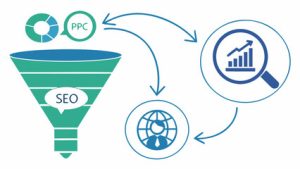Boise SEO Agency transforms websites into discoverable digital assets. Their work is subtle yet powerful. It blends analysis, strategy, and human behavior. Visibility becomes the bridge between business and audience.

Search engines constantly evolve, demanding expertise and adaptability. An SEO agency monitors trends and updates relentlessly. Algorithms change, but user intent remains central. Agencies ensure brands remain relevant despite constant shifts.
Keyword research is the backbone of every campaign. Understanding what audiences search for guides strategy. The right keywords attract both traffic and conversion. Misaligned terms waste resources and opportunities.
Content strategy drives engagement and authority. Agencies craft blogs, articles, and landing pages strategically. Content must inform, persuade, and convert simultaneously. It transforms websites into trusted resources for users.
Technical SEO ensures that search engines can access and understand websites. Speed, structure, and crawlability are critical components. Without optimization, even the best content remains invisible. Agencies maintain the structural health of digital assets.
Link-building extends a website’s credibility. Each link represents a vote of confidence from the wider internet. Quality matters more than quantity in building authority. Agencies carefully curate partnerships that enhance reputation.
User experience intertwines with SEO. Navigation, layout, and accessibility affect both rankings and satisfaction. Search engines favor sites that serve users effectively. Agencies design experiences that are both intuitive and discoverable.
Analytics inform every decision an SEO agency makes. Traffic, conversion rates, and engagement metrics guide strategy. Data-driven adjustments refine campaigns continually. Numbers reveal hidden patterns that shape future actions.
Local SEO bridges digital presence and physical reach. Optimizing for local queries attracts nearby customers efficiently. Maps, reviews, and location signals strengthen visibility. Agencies ensure businesses capture local attention without extra spend.
Mobile optimization has shifted from optional to mandatory. Most users now browse on smartphones or tablets. Pages must load quickly and display seamlessly on smaller screens. Agencies create mobile-first strategies to capture wider audiences.
Voice search introduces new challenges for discovery. Queries are conversational and context-driven. Content must reflect natural language patterns. Agencies adapt strategies to meet evolving search behaviors effectively.
SEO agencies also monitor competitors. Understanding industry trends and rival performance informs strategy. Every campaign benefits from insights about what works elsewhere. Competitive intelligence helps businesses maintain an edge.
E-commerce optimization focuses on product visibility and conversion. Product pages, reviews, and structured data improve discoverability. Agencies ensure that every listing reaches the right buyer. The result is increased traffic and higher sales.
Technical audits reveal hidden weaknesses in websites. Broken links, duplicate content, and slow load times reduce ranking potential. Agencies identify and repair these issues proactively. Regular maintenance prevents long-term problems.
Content audits evaluate effectiveness and relevance. Agencies review blogs, pages, and media for value. Outdated or underperforming material can hinder rankings. Updating content ensures continuous alignment with user intent.
SEO agencies integrate branding with search strategy. Tone, messaging, and visual identity support discoverability. Consistency builds authority and trust across channels. Branding enhances both visibility and credibility.
Search engine penalties threaten rankings. Algorithms detect spammy practices and manipulation. Agencies prevent mistakes that trigger penalties. Ethical strategies safeguard long-term online presence.
Conversion rate optimization complements SEO. Attracting visitors is one step; converting them is another. Agencies analyze behavior, test layouts, and refine funnels. Optimized sites generate both traffic and revenue.
SEO requires continuous adaptation. Algorithm updates, competitor moves, and user trends evolve constantly. Agencies maintain agility to preserve advantage. Stagnation can lead to rapid decline in rankings.
Content calendars organize strategy efficiently. Agencies schedule blogs, social posts, and landing pages for maximum impact. Timing affects visibility and engagement significantly. Consistency strengthens authority and presence over time.
Search engine optimization is a blend of art and science. Technical precision meets creativity in content and strategy. Agencies balance data analysis with human understanding. The intersection creates campaigns that resonate with both machines and people.
Voice and AI-driven searches are shaping the next era of SEO. Agencies experiment with structured data, FAQs, and AI-friendly content. Predictive search influences strategy planning. Preparing for AI-driven discovery ensures future relevance.
Analytics reporting keeps clients informed. Agencies provide insights on rankings, traffic, and conversions. Transparency builds trust and demonstrates value. Regular updates guide business decisions beyond marketing.
Local reviews influence both SEO and perception. Positive feedback attracts new customers and strengthens ranking signals. Agencies encourage and manage reputation carefully. Reputation management complements technical and content strategies seamlessly.
Link audits maintain digital authority. Agencies identify broken or toxic links and repair them proactively. Continuous monitoring ensures credibility remains intact. Authority signals are preserved for sustainable rankings.
User intent drives keyword strategy. Understanding searcher goals informs content creation and targeting. Agencies craft content that satisfies queries completely. Alignment between intent and delivery enhances both rankings and engagement.
Site architecture affects discoverability. Clean navigation and hierarchical structure improve indexing. Agencies ensure pages are accessible without clutter or confusion. Optimized architecture supports both search engines and user experience.
Video SEO expands reach and engagement. Multimedia content captures attention differently than text alone. Agencies optimize titles, descriptions, and transcripts for visibility. Rich media complements traditional SEO strategies effectively.
SEO is cyclical, not linear. Agencies revisit, test, and refine campaigns continually. Long-term growth relies on constant adjustment and monitoring. Consistency and patience are as important as technical skill.
International SEO adds complexity for global businesses. Agencies consider language, currency, and regional trends. Localization ensures content resonates in multiple markets. Cross-border optimization requires cultural and technical precision.
Mobile-first indexing now dominates search results. Agencies prioritize mobile speed, readability, and performance. Desktop optimization alone is insufficient for modern visibility. Mobile strategies ensure wider reach and better user satisfaction.
Structured data and schema markup enhance search listings. Rich snippets, FAQs, and reviews improve CTRs. Agencies implement these elements to capture attention. Enhanced listings outperform basic results consistently.
SEO agencies foster collaboration across departments. Content creators, designers, and developers work in tandem. Integrated strategy ensures every component supports search objectives. Cohesion strengthens results and efficiency.
Social signals influence indirect SEO benefits. Engagement on social platforms drives traffic and visibility. Agencies align campaigns to amplify both social reach and search performance. Integration creates a holistic digital presence.
Page speed is a crucial ranking factor. Slow pages frustrate users and reduce visibility. Agencies optimize images, code, and server response to maximize performance. Speed ensures higher engagement and better rankings.
Backlink strategy continues to define authority. Quality links outweigh sheer volume. Agencies seek relationships with credible sources to boost SEO naturally. Strong backlinks solidify long-term search credibility.
SEO agencies educate clients continuously. Understanding strategy and metrics empowers decision-making. Knowledge transfer fosters better collaboration and realistic expectations. Informed clients value insights beyond raw rankings.
Every campaign is tailored to industry and audience. Agencies avoid one-size-fits-all approaches. Customization maximizes relevance and impact. Targeted strategies achieve higher ROI than generic efforts.
SEO is both measurable and evolving. Agencies monitor KPIs, conversion, and engagement constantly. Continuous improvement ensures sustainable growth. Visibility is built through expertise, patience, and adaptability.
In conclusion, an SEO agency is a partner in digital growth. They blend strategy, technology, and creativity to achieve visibility. Every decision is informed by data and human insight. Success depends on constant evolution, precision, and understanding user needs.



